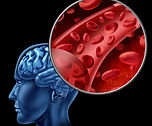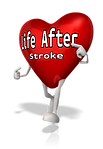St Mary's Hospital Stroke Rehabilitation Unit
Phoenix Park, Dublin, Ireland


Important Aspects of Your Rehabilitation Journey
During the early phase of the stroke, your care was provided in an acute care hospital. You required close monitoring and observation due to your medical status. When you arrive on Isolda Stroke Rehabilitation Unit you are medically stable and no longer require a high level of intensity of medical care. You will be actively participating in daily treatment sessions.
On the day of admission, you will be assessed by the team, starting initially with the doctor, nurse, Occupational Therapist and Physiotherapist. You may be assessed and treated by other members of the team depending on your specific needs.
A “key worker” will be assigned on the same day. This person will be the link to your team and will be there to support you in all aspects of your rehabilitation.
Your progress will be evaluated at one month time to determine if it is beneficial to extend your rehabilitation period further.
Assessment

The Consultant will see you every Wednesday morning during the ward rounds and will discuss aspects of your care with you. Any concerns that you might have can also be discussed.
The Consultant will also review your progress with the multidisciplinary team following the ward round.
Weekly Ward Rounds

After four weeks, a meeting may be held with you, your family, the Consultant and multidisciplinary team. This meeting is necessary to help everyone involved to see the progress that is being made as well as to assist with your discharge planning.
Family Meetings

This process will start from admission so that we are able to plan with you where you will be discharged to. The multidisciplinary team will estimate a discharge date. By the end of the first month of rehabilitation on Isolda we will be able to inform you of your discharge date. The date is decided on based on a number of factors including stroke severity and functional gains made.
Discharge Planning

Self administration of medication is encouraged as part of your stroke rehabilitation. The rehabilitation team will assess your ability to take part in the programme. Important note: Not all patients will be suitable to participate in this programme.
What is self-administration of medication?
Self-administration of medication is a programme used in Isolda Unit which enables you to take your medication by yourself while in hospital. This programme helps you to feel more independent and comfortable during your stay. It also, helps to improve your knowledge about your prescribed medication after discharge from Isolda.
Self-Administration of Medication

Risk of falls is one of the most common complications which occur after stroke. Falls may have severe consequences, both physically and psychologically.
There is a higher risk of falls when dressing, reaching for objects and doing things like going to the toilet by yourself. Staff will advise on when you are safe to do things i.e. move from bed to chair independently and what aids you might need to use in order to prevent a fall.
We have a falls prevention programme in place and we encourage family/carers to follow staff’s instructions when dressing, moving or mobilising a patient.
Falls Prevention

This is a significant component in the management of patients with stroke. Addressing urinary incontinence is an important aspect of the rehabilitation process in order to maximise independence and to reduce disability.
Nursing staff will set up a programme of regular toileting to promote continence. Restoration of continence can provide a major psychological boost for the patient and give them the confidence to participate in therapy and social events.
Continence Promotion

The Occupational Therapy team run a “Breakfast Club” once in a week from 8:30 – 10:00 am. The aim is to help you to improve your participation in preparing breakfast and to provide an opportunity to practice your skills in meal preparation and clean up. During the programme you will have the opportunity to socialise with other patients, have a break from the ward routine and increase confidence in your abilities.
Breakfast Club

The team will assess you before granting permission for overnight leave. This will depend on your ability to manage outside the hospital environment in a safe manner with the support of your family or friends. The therapists will need to assess your home environment to ensure that you do not encounter difficulties that may impact on your leave such as access to the house, toileting facilities, mobility aids and medication supervision, before encouraging overnight leave.
When the therapists are confident of the safety of the “overnight leave” it may be possible for you to leave the unit for a night or for the weekend.
Please feel free to discuss your intention with your key worker or occupational therapist. The doctor will document in your medical file that you have permission to leave the hospital provided that you are feeling well.
Overnight Stay for Week Ends

In order for a stroke patient to return home, their home environment may need to be adapted to ensure safety and to support independence. Effects of stroke such as weakness, paralysis, problems with balance or coordination, pain or numbness, problems with thinking, tiredness, and problems with bladder or bowel control can all change the way a person may function at home. It is a good idea to have a trial visit at home before you are discharged from the hospital so that any adaptations and equipment required can be provided before returning home. The occupational therapist will determine the best home modifications required to facilitate returning home.
Home Visits

The Iveagh Suite is an independent living unit which simulates the home environment for client use, generally over a 48 hour period. It is located on campus, on first floor of the hospital.
Purpose:
It aims to facilitate clients to regain confidence to live independently within a step-down facility while providing distance supervision from a staff perspective.
This process is not required for all clients. If you need further information relating to this process, please talk directly to your occupational therapist.
Iveagh Suite

In order for you to understand the rehabilitation journey, we would like to introduce you to the different elements of care and service provision you will experience during your stay with us on Isolda.